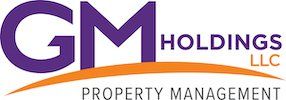What To Look For When Choosing A New Office
Trying to get a new startup or small business off the ground as an entrepreneur can be a stressful process. You’ll also need to find an adequate location to start or grow your company. A great workspace will make a pivotal first impression on your employees and clients, and given that the typical commercial lease lasts for 3-5 years, you’ll also need to consider a location that meets both your present and future needs before you make any commitments.
At GM Holdings, we aim to make the leasing process easy and to help you find the perfect office space. If you are an entrepreneur in the Greater Philadelphia area, we have an entire page devoted to our commercial properties for rent. For further assistance in searching for an office space, you can fill out our Contact Form or call our offices at 215-987-6477. Regardless of where you’re based, here are some factors to consider when looking for any new office space.
Location
To offer an effective workspace for your employees, you’ll want it to be based in a location that they feel comfortable going to and from. Consider factors such as the region’s safety and security, transit/transportation accessibility, as well as the things surrounding the office itself. Supplying enough parking spaces is crucial, and having plenty of dining or fitness center options during lunch break, or bars and nightclubs to spice things up after work, go a long way to make the work week feel less like a monotonous cycle for your clients, employees, and yourself.
If you’d rather opt for a cheaper, suburban office space with fewer means of public transit, make sure that the lighter lease is worth the tradeoff of fewer clients and employees who may not be willing to drive. Even with the luxury of remote work facetime, in-person meetings can still be a crucial facet of building a sense of rapport between you and your associates.
Cost
This one’s a tricky tightrope to walk. Set too low of a budget and you risk having an office that is insufficient in size and quality. Spend too far outside your comfortable budget zone, and you risk being unable to keep up the rent and other business expenses. Before you even think about putting your John Hancock on that lease, always account for the FULL cost of what you’re getting, including rent, utilities, construction, moving costs, and some of the less overt, more unwritten costs such as parking or maintenance.
Consider if you can afford at least the initial security deposit and first three months of rent. To ensure that you’re truly getting the best deal for your buck, always consider the prices for similar spaces in the area.
Size
As a general rule of thumb, it’s recommended that you allot 70 square feet of workspace per person. Depending on your staff’s other needs, such as the size of meeting spots, break rooms, or any additional storage or desk space, you may want to bolster that square footage.
To maintain inclusivity, you also want to ensure that your landlord’s office space is compliant and up to snuff to the Americans With Disabilities Act. Doors to office suites must be at least 32 inches wide, take fewer than five pounds of force to open, and that all conference tables span 27 inches or higher to accommodate wheelchair accessibility. For a more comprehensive, helpful overview on all of the ADA’s compliance standards, view their official employer checklist here .
Infrastructure
Before you commit, always ask the landlord or property manager for an ISP speed test, and if the space is a shared complex for other businesses, don’t be afraid to ask around about their prior experiences with the infrastructure.
Printed documents and traditional mailed paper materials may hold less priority or importance in the modern age, but nevertheless, any sort of postal services are still an added plus to keep your workflow moving. Always ask if the property has a dedicated postal address, and beyond communication infrastructure, you’ll also want to consider if a space will allow you any freedom over customizing your physical infrastructure. Hung paintings, pictures, or wall decorations may not be a vital necessity quite like the other priorities to look forward to, but nevertheless, it can still be a useful tenant of bolstering company branding and making your business stand out.





